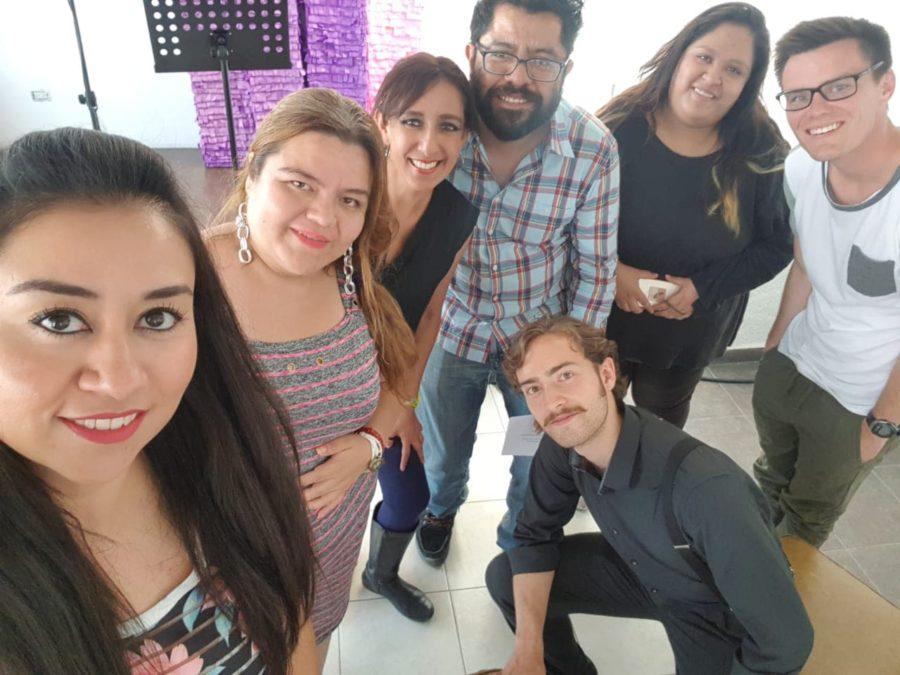Expressions from Puebla
Ryan Drendel and his minificción classmates, pictured at Universidad Popular Autónoma del Estado de Puebla” Courtesy photo
If we have had a conversation, you may have noticed how frequently I nod. Watch me. I look like a bobblehead when I’m listening.
I never thought this was a bad thing. Nodding provides positive, nonverbal feedback. I can tell someone I’m paying attention to them without having to interrupt them. I didn’t question my habitual nodding until I came to Mexico. Here, I’ve realized that hearing and understanding are two different things.
It is humbling to live in a country whose most-common language is not your own. This sounds obvious. But until you spend six weeks straight, unable to articulate your emotions or complex ideas, the sensation is difficult to imagine.
Before Mexico, I never wondered how it would feel to be worst writer in a class, by far. But then I was asked to read my minificción (flash fiction) aloud. I never expected to be embarrassed to pay for dinner, but then my Mexican friend told me that I had—for weeks—been asking waiters to tell me a story (el cuento) instead of bringing me the bill (la cuenta).
Embarrassing epiphanies like these happen to me almost daily. On Friday, I finally learned that it was rude to ask an Uber driver where they were from (de dónde eres), without attaching the optional pronoun (tú).
Another example: in the United States I was taught that no me importa translates to “I don’t care.” This is true, but sometimes translations can lack local context. In Puebla (and perhaps in other parts of Latin America) no me importa comes off a bit flippant. Lo que sea is a more tactful way to express feelings of indifference.
Despite incessant social incorrectness, there are undeniable benefits to having the vocabulary of a first grader. For starters, my Spanish level demands that I listen more often than I speak. This has made me discover what I should have known all along; I learn more when I don’t try to prove what I already believe. Being hard of hearing has also given new value to each day. Words have more texture when you must cling to them to understand what you hear.
I believe that my inability to speak has also, paradoxically, made me a better speaker. The process of translating my ideas into Spanish creates a buffer between thinking and saying. This pause presents a constant opportunity for self-critique. After all, how should I say this? isn’t too far from the much more important question, should I be saying this?
There is a Spanish phrase that goes, allí donde fueres, haz lo que vieres. It translates to “wherever you go, do what you see.” In other words, live like the locals do.
I am trying to do what I see the Poblanos do—mainly, speak Spanish. And when they are kind enough to converse with me, even if I don’t understand everything, I think the best thing to be doing is nodding and listening.
Your donation will support the student journalists of Missouri Southern State University. Your contribution will allow us to purchase equipment and cover our annual website hosting costs.






























